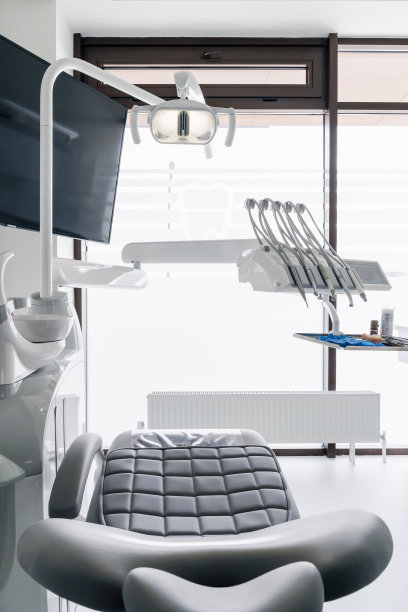Summary: Dental fillings are an important dental procedure that can help restore damaged teeth, but they also require careful attention before and after the treatment. This article offers essential tips to prepare for your dental filling procedure, advises on what to do during recovery, and highlights aspects of good oral hygiene and follow-up care. By following these guidelines, patients can ensure optimal care, effective recovery, and long-lasting dental health. Whether youre anxious about an upcoming appointment or wondering how to maintain your filling, these tips will provide clarity and assurance.
1. Preparing for Your Dental Filling Appointment

Before heading into your dental filling appointment, preparation is key. Start by discussing any concerns you may have with your dentist. Understanding the procedure, including types of fillings and what to expect, can alleviate anxiety. This open dialogue builds trust and confidence, making your appointment smoother.
Next, ensure that you have a reliable way to get to and from your appointment, especially if you’ll be receiving sedation. Having a friend or family member accompany you can also provide emotional support and assistance, allowing you to feel at ease.
Finally, consider your diet leading up to the appointment. Eating a light meal before the visit can help avoid discomfort during treatment. Additionally, know that some procedures may require you to refrain from eating certain foods after the filling, so it’s wise to prepare snacks in advance.
2. Understanding the Filling Procedure
Knowledge of the dental filling procedure itself can alleviate any fears you may have. The dentist will begin by numbing the area around the affected tooth, ensuring you remain comfortable throughout the process. The filling material, whether composite resin, amalgam, or gold, is then applied after cleaning and preparing the cavity.
It’s essential to stay calm during the procedure. Deep breathing and relaxation techniques can help if you feel anxious. Communicate openly with your dentist; if you feel any discomfort, let them know immediately.
Post-procedure, you may experience numbness in your lips or tongue due to the anesthesia used. Be cautious when eating or drinking until the numbness wears off to avoid accidental bites or burns. Understanding these steps promotes a smooth filling process with minimal stress.
3. Care Tips After Your Filling Procedure
After receiving a dental filling, your focus should shift towards recovery and care. First and foremost, avoid hard or sticky foods for at least 24 hours. This precaution helps ensure that your filling remains intact and prevents unnecessary discomfort.
Maintaining oral hygiene post-treatment is crucial. Gently brush your teeth and the filling site to remove debris and prevent plaque buildup. However, steer clear of vigorous brushing or flossing near the filled tooth until your dentist advises it’s safe. Regular dental care at this stage promotes healing and protects your investment.
Pay attention to how the filling feels during the first few days after treatment. If you experience prolonged sensitivity or discomfort, don’t hesitate to contact your dentist. Early intervention can help address potential issues, ensuring that the filling remains effective and comfortable.
4. Importance of Regular Dental Check-ups
Routine dental check-ups play a vital role in maintaining not only the health of your fillings but your overall dental health as well. Schedule follow-up appointments as advised by your dentist to assess the condition of your fillings and surrounding teeth.
During these visits, your dentist will monitor the wear and tear of the filling and can make adjustments if necessary. Staying ahead of dental issues can prevent more significant problems in the future, extending the life of your fillings.
Additionally, your dentist can provide further advice tailored to your oral health needs, including tips on dietary choices and at-home care practices. Regular check-ups support a preventative approach to dental health, ensuring your fillings and overall oral condition remain optimal.
Summary:
In conclusion, preparing for and caring for your dental fillings involves several crucial steps. Being informed before your appointment reduces anxiety and enhances the experience. Post-treatment care is essential to ensuring the longevity of your fillings, while regular dental check-ups are a proactive approach to maintaining your oral health. With proper attention to your dental care, you can enjoy a pain-free smile.
This article is compiled by Vickong Dental and the content is for reference only.
Vickong Dental
Vickong Dental is a large medical group established in Hong Kong in 2008 by professors from well-known medical universities in Guangdong and Hong Kong, as well as medical doctors from key national '985' universities (including Master's supervisors and senior professors). The chain of branches brings together expert dentists with PhDs and Master's degrees from Hong Kong and Mainland China, committed to providing high-quality dental treatment.
"Vickong Dental Practices the University Motto of 'Healing and Serving Society,' with a Stable Operation for Sixteen Years. It Has Been honored with Hong Kong Enterprise Leaders's Choice,' and is a Global Trusted Implant Center for the Nobel Implant System. Recommended by Hong Kong Metro Broadcast and Guangdong Television, it Serves Customers from Over Thirty Countries and Regions, Gaining the Trust and Favor of Citizens from the Guangdong-Hong Kong-Macau Greater Bay Area and Surrounding Cities.

Thousands of customers' unanimous praise
The most recognized and highly recommended dental service by customers in the Guangdong-Hong Kong-Macau Greater Bay Area
We Ensure You Receive Detailed Care and Attention Here
Hong Kong standards, Shenzhen prices, Your Trusted English-speaking dentists

Vickong Dental Medical-Grade Instrument Disinfection Process
Vickong Dental Medical-Grade Instrument Disinfection Process

Vickong Dental Chain: A Warm and Comfortable Environment for Treatment






Appointment Hours

Q&A
Why choose Vickong Dental?
Vickong Dental practices the university motto 「Medicine to Benefit Society」, with each branch bringing together highly qualified dentists with doctoral and master’s degrees from Hong Kong and the Mainland, and has maintained seventeen years of steady operation。Recipient of 「2024 Hong Kong Enterprise Leaders Brand」, 「2025 Hong Kong Enterprise Leaders Brand」, a Nobel Biocare Global Trusted Implant Center, and a brand recommended by Metro Radio Hong Kong and Guangdong TV。
To date, we have served customers from more than thirty countries and regions,earning exceptionally high word-of-mouth recognition and trusted recommendations from residents across the Guangdong-Hong Kong-Macao Greater Bay Area and surrounding cities
We have eight major branches in Zhuhai、Shenzhen,and a consultation and service assurance center in Hong Kong,so you can book a free consultation at any time for any questions,which is very reassuring.
If I do not accept the quotation after the CT scan, will I be charged??
No! As long as the actual treatment has not started, you will not be charged any fees.
Will there be any additional charges during the treatment process?
No, there won’t be any additional charges. Before treatment begins, we will clearly explain the treatment plan and its corresponding fees. Only after the patient agrees and signs the consent form will we proceed with the dental service.
Can I pay in Hong Kong dollars?
Yes. Vickong Dental accepts payment in Hong Kong dollars. The amount will be converted based on the exchange rate of the day, and the applicable rate will be clearly communicated to you in advance.
Can I reschedule my appointment at any time?
Yes. Please contact us via **WeChat** or **WhatsApp** as early as possible, providing your original appointment time and details, along with your preferred new date and time slot for rescheduling.













